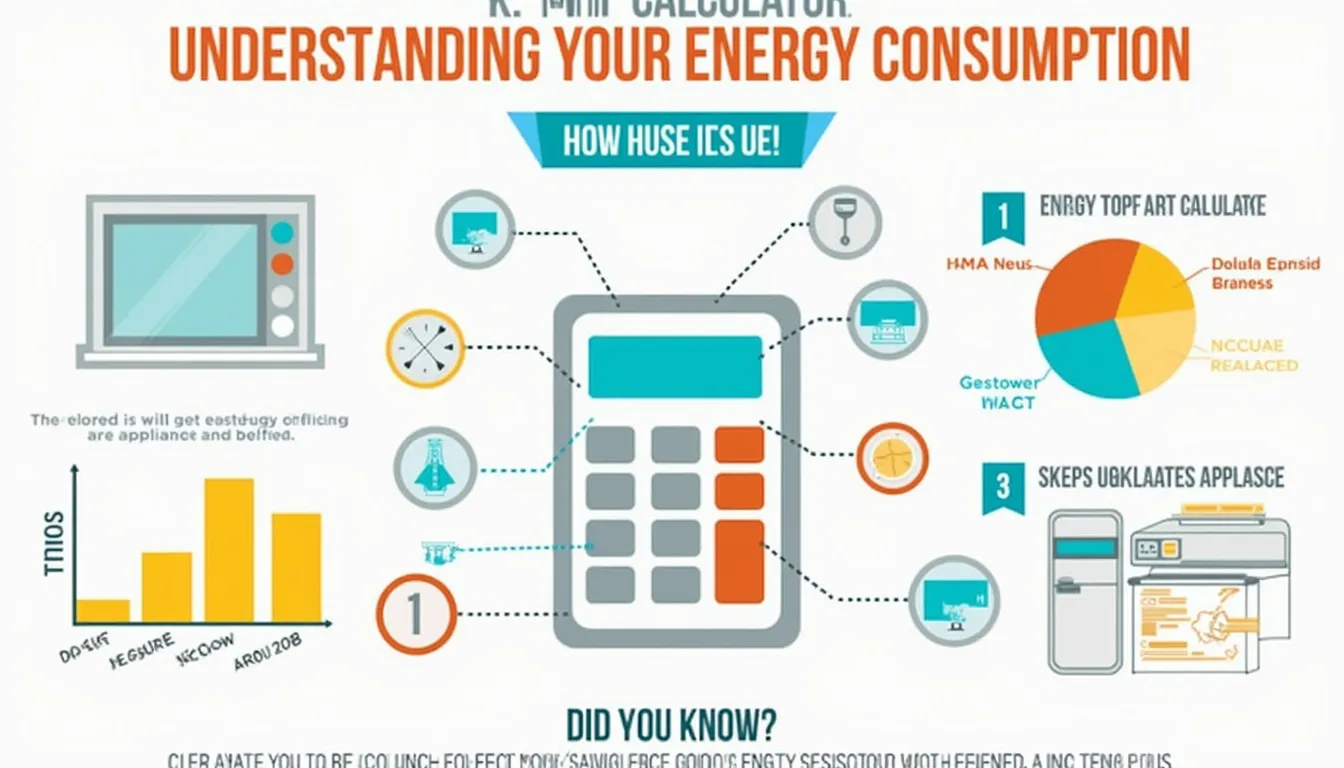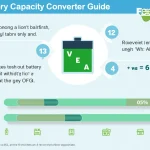Is this tool helpful?
How to use the tool
- Power Rating (W): Type the appliance’s wattage.
Example A: 900 W toaster | Example B: 1 800 W portable heater. - Usage Time per Day (h): Enter daily runtime.
Example A: 0.2 h (12 min) | Example B: 6 h. - Number of Days: Choose the span you want to total.
Example A: 10 days | Example B: 45 days. - Cost per kWh ($): Add your tariff, e.g., 0.16 or 0.22. Leave blank to keep the default.
- Press “Calculate” to view consumption, cost and the bar-chart comparison.
Behind-the-Scenes Math
The script applies two formulas:
$$ \text{Daily Energy (kWh)} = rac{\text{Power (W)} \times \text{Time (h)}}{1000} $$ $$ \text{Total Cost (\$)} = \text{Daily Energy} \times \text{Days} \times \text{Cost per kWh} $$Worked Example 1 — Toaster
- Power = 900 W
- Time = 0.2 h
- Days = 10
- Tariff = $0.16
Daily Energy = (900 × 0.2)/1000 = 0.18 kWh
Total Energy = 0.18 × 10 = 1.8 kWh
Cost = 1.8 × 0.16 = $0.29
Worked Example 2 — LED TV
- Power = 110 W
- Time = 4 h
- Days = 31
- Tariff = $0.19
Daily Energy = (110 × 4)/1000 = 0.44 kWh
Total Energy = 0.44 × 31 = 13.64 kWh
Cost = 13.64 × 0.19 = $2.59
Quick Facts
- Average U.S. residential rate = 15.96 ¢/kWh (EIA, 2023).
- 1 kWh emits 0.855 lb CO₂ on the U.S. grid (EPA, 2022).
- Electric kettles: 1 200-3 000 W (Energy Saving Trust, 2021).
- ENERGY STAR fridges use ≤ 400 kWh/yr (EPA ENERGY STAR spec, 2023).
FAQ
What is a kilowatt-hour?
A kilowatt-hour is the energy used by 1 000 W for one hour; utilities bill you in kWh (IEC 60050).
How do I convert watts and hours to kWh?
Multiply watts by hours, then divide by 1 000; 500 W × 3 h = 1.5 kWh (DOE Energy Basics).
Why enter my local cost per kWh?
Your tariff decides final expense; U.S. state rates range 10-43 ¢/kWh (EIA Electric Sales, 2023).
How accurate are the results?
The math is exact; accuracy depends on how precisely you know wattage and runtime (NREL, Guidebook 2022).
Which home devices consume most energy?
HVAC, water heaters and dryers top lists, each ≥ 1 500 W continuous (EIA RECS 2020).
How can I cut consumption fast?
Shorten runtime, unplug idle chargers, and choose ENERGY STAR appliances—up to 30 % savings (EPA ENERGY STAR, 2023).
Can I size a solar/battery system with this calculator?
Yes—sum daily kWh, then match panels and storage to that load (NREL PVWatts, 2023).
Does standby power matter?
Yes; idle electronics add 50-100 kWh yearly per home (Lawrence Berkeley Lab, 2022).
Important Disclaimer
The calculations, results, and content provided by our tools are not guaranteed to be accurate, complete, or reliable. Users are responsible for verifying and interpreting the results. Our content and tools may contain errors, biases, or inconsistencies. Do not enter personal data, sensitive information, or personally identifiable information in our web forms or tools. Such data entry violates our terms of service and may result in unauthorized disclosure to third parties. We reserve the right to save inputs and outputs from our tools for the purposes of error debugging, bias identification, and performance improvement. External companies providing AI models used in our tools may also save and process data in accordance with their own policies. By using our tools, you consent to this data collection and processing. We reserve the right to limit the usage of our tools based on current usability factors.







